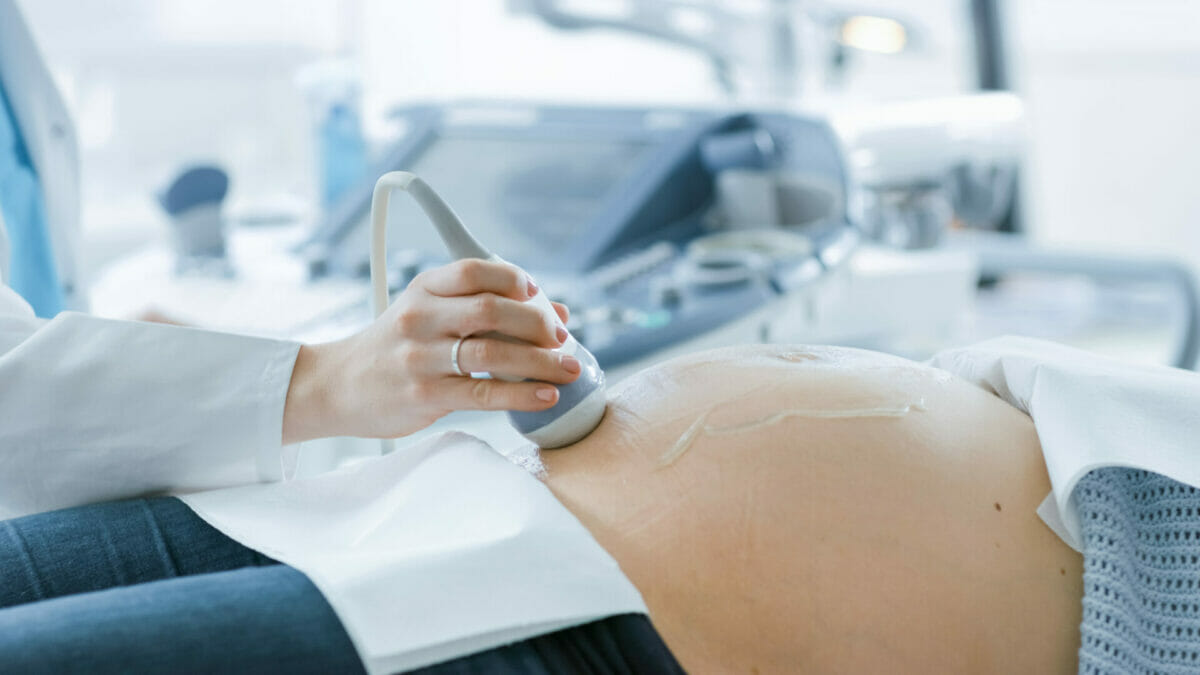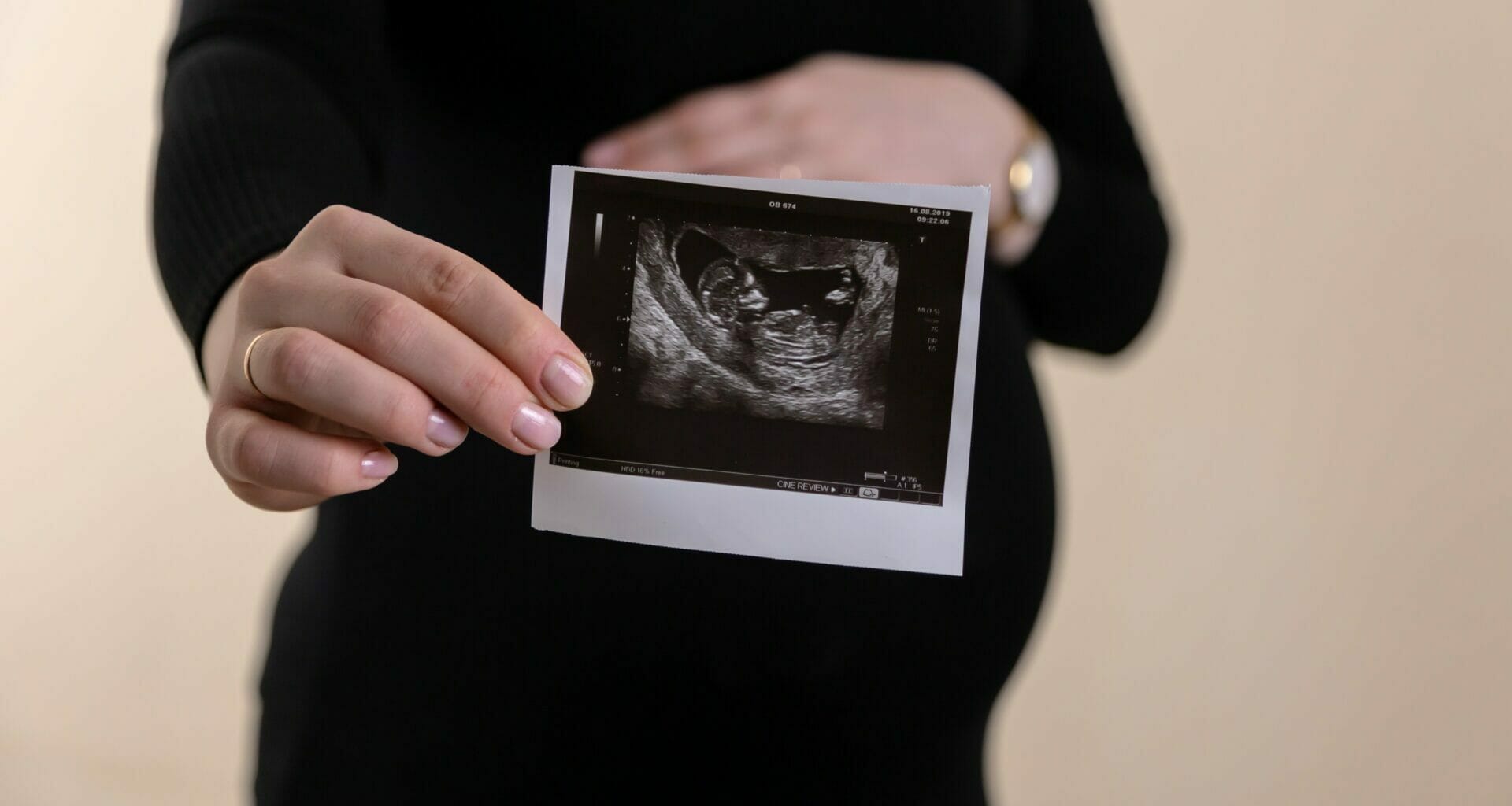Just five of 45 private clinics offering pregnancy scans in Scotland are registered with the national regulatory body, prompting fears unqualified people are wrongly advising pregnant women, an investigation by The Ferret has found.
One woman scanned at an unregulated baby scanning clinic was advised she had lost her pregnancy, only to be told later by an NHS clinic that it was progressing normally. Other women said staff performing scans seemed unsure how to use the equipment or interpret scanned images.
A loophole in regulation means only those private clinics run by healthcare professionals, a categorisation that does not include sonographers, are required to register with and be inspected by Healthcare Improvement Scotland. The remaining clinics are likely to be run solely by sonographers or, in some cases, those without full training or qualifications.
The British Pregnancy Advice Service said The Ferret’s findings were concerning and more needed to be done to regulate these services. Monica Lennon MSP said the loophole should be closed in the interests of health and safety standards.
The Ferret found that at least 45 private clinics offering baby scanning were operating in Scotland. The true total is likely to be higher; some clinics exist solely to offer baby scans while other private medical facilities offer these as one of a number of available services.
Healthcare Improvement Scotland confirmed that just five clinics providing pregnancy scans had registered.
Private ultrasound clinics market themselves in a variety of ways, with some offering a recreational experience where expectant parents can purchase souvenirs such as teddy bears with their baby’s heartbeat, framed scans, or ‘gender reveal’ products. Others suggest they offer ‘reassurance’ scans for those with concerns, gender confirmation scans or early scans.
Some clinics are independent, while others operate as part of a franchise.
A number of women spoke to The Ferret about their experiences with private scanning clinics in Scotland. Some gave positive reviews, but others commented on the transactional nature of the service, with payment often expected upfront, and a lack of empathy when informing women of abnormalities or concerns.
Some said they had been unable to escalate their complaints due to clinics being unregistered.
This loophole must be closed in the interests of safety and healthcare standards
Monica Lennon MSP
Jennifer McCracken, 23, a nurse from Motherwell, booked a scan at Baby Stepps clinic, North Lanarkshire, in December last year, when her pregnancy was still too early to entitle her to a standard NHS scan. The clinic is now registered with HIS but was not at the time of Jennifer’s appointment.
She was told at the appointment her pregnancy had ended and there was no fetus visible on the scan. But when she followed up with her local NHS Early Pregnancy Clinic, a second scan found the pregnancy was progressing normally. McCracken now has a healthy four-month-old son.
“The sonographer told us there was no baby and that it had most likely been reabsorbed. We were advised to phone our NHS Early Pregnancy Clinic but that we should attend with ‘no hope’,” said McCracken, who had been excited to attend the scan with her partner.
“She told us, ‘you can get a second opinion, but there’s nothing there’.”
McCracken’s private appointment took place on a Saturday and she was unable to access an NHS appointment until late on Tuesday.
“I had to phone off work because I was expecting to have a miscarriage,” McCracken, a nurse, told The Ferret. “I spent the weekend in inconsolable floods of tears; every time I went to the toilet I was checking for blood.
“But I wasn’t in any pain and I still felt sick from being pregnant – I was really confused and upset. I kept thinking, ‘if there’s a higher power, why are they letting me still feel pregnant?’ It was the worst weekend of my whole entire life.”
When she did eventually attend the Early Pregnancy Clinic, to be told her pregnancy was progressing healthily, McCracken was “gobsmacked and overwhelmed.”
“I showed the midwife the scan from the private clinic and she told me she could see my baby in it,” McCracken recalled. “I asked if maybe it had been twins and one had died – she said, ‘no, there’s just one healthy pregnancy’.”
Baby Stepps was asked to comment.

Another woman, who asked not to be named, told The Ferret she had been unable to secure a refund for a booked private scan after suffering a miscarriage, while some said those performing their scans seemed unsure of how to use the equipment or interpret the scan’s images.
Individual staff in unregulated baby scanning clinics may still be registered with their own professional bodies such as the Society of Radiographers or the British Medical Ultrasound Society. McCracken said the private clinic that performed her scan was evasive about which member of staff had carried out the ultrasound, leaving her unable to pursue an individual complaint.
“I tried Healthcare Improvement Scotland and they couldn’t help me, I tried the Care Inspectorate and they couldn’t do anything,” said McCracken.
“I couldn’t report the sonographer without her details – the Ultrasound Society said they couldn’t help. I even phoned Citizens Advice and they were clueless too.”
“It was my first pregnancy, I was just buzzing and I didn’t even think to question it,” she said.
“I took it for granted they would be registered. They’re offering something medical – you just assume somebody must be taking charge of this.”
Monica Lennon MSP said the findings of The Ferret’s investigation were worrying and must be taken seriously by the authorities.
“Many women will be surprised to learn that the majority of private clinics offering baby scanning are unregulated,” Lennon said.
“In my view, this loophole must be closed in the interests of safety and healthcare standards.”
“They’re offering something medical – you just assume somebody must be taking charge of this”
Jennifer McCracken, nurse
Gill Harrison, of the Society of Radiographers, told The Ferret the organisation had been “concerned about the use of ultrasound by unqualified, untrained staff for some time.”
“Ultrasound examinations require highly skilled professionals to perform complex checks on the baby to make sure that everything appears as expected for the stage of pregnancy,” she said.
“Whilst we are aware that some clinics offer scans solely to provide an opinion on the sex of the baby, the SoR would still expect that the person carrying out the scan is competent to check that the baby is in the correct location, has a heartbeat and has no obvious unexpected physical conditions.
“If expectant parents are thinking of booking private scans in pregnancy we would strongly advise them to ask what qualifications the ultrasound practitioners have, but also to continue to attend for their routine NHS screening scans.”
A 2017 survey suggested the rise in private scanning across the UK was driven by increasing anxiety among expectant parents. Experts have also suggested a shortage of midwives and concerns about NHS pressures and provision could be contributing factors.
A spokesperson for the British Pregnancy Advice Service said the organisation had heard of women spending large amounts of money for multiple ‘reassurance’ scans which were not provided by a licensed medical professional.
“It is completely understandable that a woman and their partner or family would assume that an ultrasound machine would be being operated by a clinician,” they said.
“Sadly, there have been reports of private clinics not providing women with accurate information, including being evasive about the detection of a foetal anomaly. More needs to be done to regulate these services.”
An independent clinic in Scotland is defined in legislation as a clinic that is not part of a hospital from which a medical practitioner, dental practitioner, registered nurse, registered midwife or dental care professional provides a service, such as a consultation, investigation or treatment, which is not part of the NHS.
“If a private baby scan clinic falls under the definition of an independent clinic then it would need to register with Healthcare Improvement Scotland and be inspected on a regular basis,” a spokesperson for Healthcare Improvement Scotland said. “There are currently five clinics providing these services that are registered with us.
“It is only by using a registered clinic that is regulated and inspected by Healthcare Improvement Scotland, that patients can be assured about the quality of the service they receive and that the providers are meeting the standards required to ensure the patients’ safety.”
Main image thanks to Volodymyr Hryshchenko














